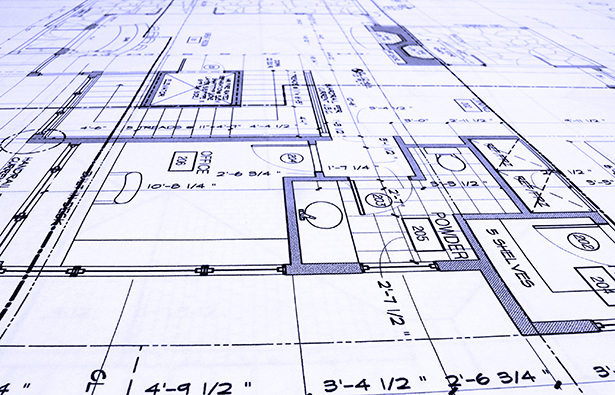When litigating construction defect claims and disputes against contractors in California, and when formulating the complaint, conducting discovery and preparing for trial, one should always look to the California Business and Professions Code laws and standards that apply to contractors. The California Business & Professions Code contractor provisions go well beyond the basic licensing requirements and set out a series of critical contractor standards, describing various acts that are violations that could be the basis of disciplinary action, but which also work as baseline legal standards for conduct that can be used in any litigation, not just disciplinary actions.
While many of these code sections appear to describe conduct that is obviously substandard, these critically explicit code resources tend to be overlooked and underutilized by litigators in breach of contract litigation where the focus will naturally center on the defects, building standards, plans, deviations and cost of repair, rather than on the specifics of the Business & Professions Code as it applies to contractors.
Importantly, these code sections can be used against a contractor in most any contractor litigation, and depending on the conduct or violation, these sections provide a broad network of legal duties, standards and violations, that can be used to establish violations per se, per se breaches of duty and negligence per se, as well as minimum standards of conduct that can effectively prove and win a case. These laws are an invaluable and often overlooked resource in actions against contractors. A brief survey of some of the more useful Business & Professions Code sections is offered below:
Special Note is given to §§ 7108.5 and 7160 which provide for the recovery of attorney fees.
All references are to the California Business & Professions Code.

§ 7107: Abandonment of Project.
Abandonment without legal excuse of any construction project or operation engaged in or undertaken by the licensee as a contractor constitutes a cause for disciplinary action.
§ 7108: Diversion of Funds or Property.
Diversion of funds or property received for prosecution or completion of a specific construction project or operation, or for a specified purpose in the prosecution or completion of any construction project or operation, or failure substantially to account for the application or use of such funds or property on the construction project or operation for which such funds or property were received constitutes a cause for disciplinary action.
§ 7108.5. Prime contractors and subcontractors; payment to subcontractors.
(a) A prime contractor or subcontractor shall pay to any subcontractor, not later than seven days after receipt of each progress payment, unless otherwise agreed to in writing, the respective amounts allowed the contractor on account of the work performed by the subcontractors, to the extent of each subcontractor’s interest therein. In the event that there is a good faith dispute over all or any portion of the amount due on a progress payment from the prime contractor or subcontractor to a subcontractor, the prime contractor or subcontractor may withhold no more than 150 percent of the disputed amount.
(b) Any violation of this section shall constitute a cause for disciplinary action and shall subject the licensee to a penalty, payable to the subcontractor, of 2 percent of the amount due per month for every month that payment is not made.
(c) In any action for the collection of funds wrongfully withheld, the prevailing party shall be entitled to his or her attorney’s fees and costs.
(d) The sanctions authorized under this section shall be separate from, and in addition to, all other remedies, either civil, administrative, or criminal.

§ 7109: Departure from accepted trade standards; departure from or disregard of plans or specifications
(a) A willful departure in any material respect from accepted trade standards for good and workmanlike construction constitutes a cause for disciplinary action, unless the departure was in accordance with plans and specifications prepared by or under the direct supervision of an architect.
(b) A willful departure from or disregard of plans or specifications in any material respect, which is prejudicial to another, without the consent of the owner or his or her duly authorized representative and without the consent of the person entitled to have the particular construction project or operation completed in accordance with such plans or specifications, constitutes a cause for disciplinary action.
§ 7110: Violation of Law.
Willful or deliberate disregard and violation of the building laws of the state, or of any political subdivision thereof,
§ 7111: Failure to Keep Records.
Failure to make and keep records showing all contracts, documents, records, receipts, and disbursements by a licensee of all of his or her transactions as a contractor, and failure to have those records available for inspection by the registrar or his or her duly authorized representative for a period of not less than five years after completion of any construction project or operation to which the records refer, or refusal by a licensee to comply with a written request of the registrar to make the records available for inspection constitutes a cause for disciplinary action.

§ 7113: Breach of Contract.
Failure in a material respect on the part of a licensee to complete any construction project or operation for the price stated in the contract for such construction project or operation or in any modification of such contract constitutes a cause for disciplinary action.
§ 7160. Contract induced by falsity or fraud: suit for penalty, fees and damages
Any person who is induced to contract for a work of improvement, including but not limited to a home improvement, in reliance on false or fraudulent representations or false statements knowingly made, may sue and recover from such contractor or solicitor a penalty of five hundred dollars ($500), plus reasonable attorney’s fees, in addition to any damages sustained by him by reason of such statements or representations made by the contractor or solicitor.
§ 7116. Willful or fraudulent injury.
The doing of any willful or fraudulent act by the licensee as a contractor in consequence of which another is substantially injured constitutes a cause for disciplinary action.

§ 7117. Variance from license.
Acting in the capacity of a contractor under any license issued hereunder except: (a) in the name of the licensee as set forth upon the license, or (b) in accordance with the personnel of the licensee as set forth in the application for such license, or as later changed as provided in this chapter, constitutes a cause for disciplinary action.
§ 7119. Lack of diligence
Willful failure or refusal without legal excuse on the part of a licensee as a contractor to prosecute a construction project or operation with reasonable diligence causing material injury to another constitutes a cause for disciplinary action.
§ 7120. Failure to pay money: false denial of claim
Willful or deliberate failure by any licensee or agent or officer thereof, to pay any moneys, when due for any materials or services rendered in connection with his operations as a contractor, when he has the capacity to pay or when he has received sufficient funds therefor as payment for the particular construction work, project, or operation for which the services or materials were rendered or purchased constitutes a cause for disciplinary action, as does the false denial of any such amount due or the validity of the claim thereof with intent to secure for himself, his employer, or other person, any discount upon such indebtedness or with intent to hinder, delay, or defraud the person to whom such indebtedness is due.
Speak with our construction defect attorneys, for a consultation call (310) 706-4134 or visit us on the web to make an appointment.
Norton & Associates. Los Angeles Construction Defect and Real Estate Litigation Attorney. Experience. Excellence. Results.


